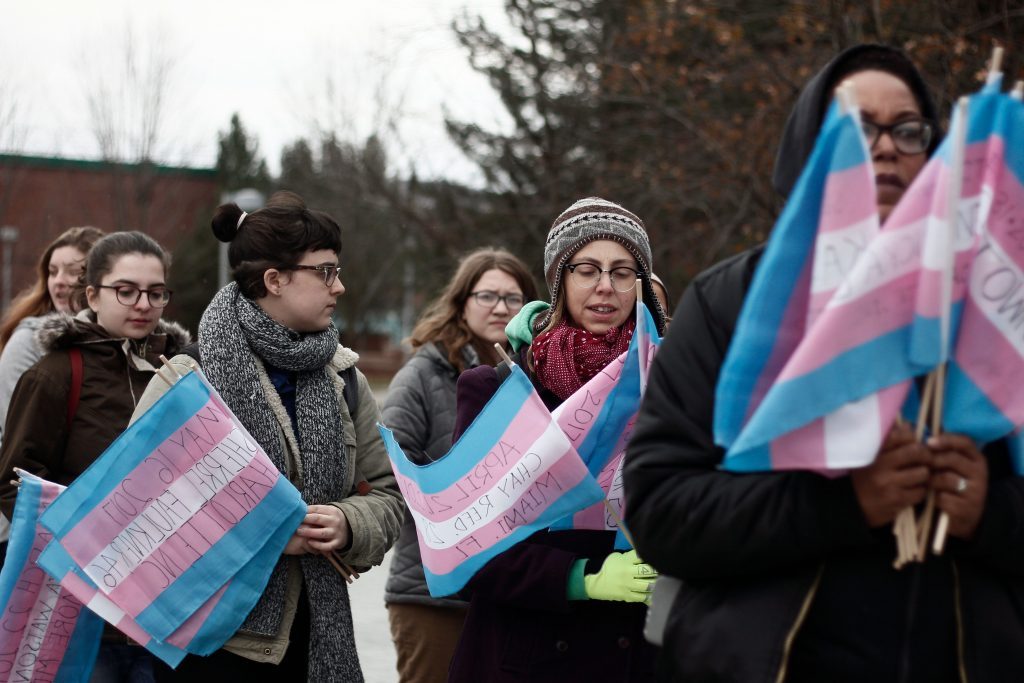The Q Center will be celebrating its fifth anniversary this year since its founding by director Kelly Clark.
The Q Center, a division of the Office of Diversity, Equity and Inclusion (DEI), is tasked with supporting the success of LGBTQ+ students, faculty and staff at Binghamton University. The center offers a lounge, conference room, library and a gender-affirming clothing closet for students exploring their gender expression and presentation. Programming offered by the center includes the Active Ally Program, which offers trainings on how to support LGBTQ+ individuals and communities in an active capacity, and the Pegasus First Year Experience Programs, which aim to help LGBTQ+ students transition into college life. They also take individual phone calls from students and faculty who have questions regarding LGBTQ+ matters.
While the COVID-19 pandemic has impacted many of the Q Center’s activities planned for this year, the five-year anniversary will still be celebrated at the Lavender Graduation ceremony. The Lavender Graduation ceremony, held to honor LGBTQ+ students as they graduate, will be held via Zoom on April 25. This year’s Lavender Graduation is particularly meaningful to the Q Center, as it is the fifth since its inception. The Q Center has invited back alumni who were students and interns when the center first opened. There will also be former students who were on the planning committee before the center opened in attendance.
“We are asking the community to share with us thoughts, memories and photographs,” Clark said. “We typically do a year in review during Lavender Graduation, so this year we are trying to do five years in review.”
In the past five years, the Q Center has shifted its focus from programming to more strategic programming, according to Clark.
“A lot of cultural organizations are doing great [collaborations], and we came to the understanding that the Q Center didn’t need to do more programming,” Clark said. “We have switched gears to try to figure out where the University gets the most return for its investment creating the center five years ago.”
An example of an accomplishment from the Q Center Clark mentioned is the new first-year experience program. Originally existing as an in-house seminar, freshmen now have the opportunity to take the University-wide course 101: ABCs of LGBTQ: Histories, Identities and Cultures for academic credit hours. Additionally, Clark said the center has also worked to strengthen its Active Ally Program.
“We have switched to things that make more sense for a department to do,” Clark said. “We can use the investment and our budget from the University for things that will really make bigger, broader differences.”
The future goals of the Q Center include improving its service to graduate and Ph.D. students. Clark said it can be difficult for graduate and Ph.D. students to find other members of the LGBTQ+ community on campus.
“It is a really different set of services that graduate students need, one thing would be working more with graduate programs across the University,” Clark said. “A lot of Ph.D. programs are bringing in five to 10 students a year, it’s not like 3,000 first-year students, it’s different and siloed.”
Clark would also like the Q Center to create a senior capstone program that would be tailored to LGBTQ+ seniors and serve as a bookend to the first-year experience program.
“[Seniors] are getting ready to go out and start a career or graduate program where they will go through the same issues of coming out and identity,” Clark said. “Helping them to think through and create plans for themselves around LGBTQ identities and first jobs would be helpful for our seniors.”
Additionally, part of the Q Center’s mission is to be a catalyst for LGBTQ+ scholarship. This includes working with alumni to create grants that would allow for undergraduate or graduate research projects. Clark listed some hypothetical examples of projects that could happen in the future.
“There’s opportunities for people in nursing on how to work with LGBTQ elders, there are opportunities for folks in the School of Management to think about gender-neutral marketing and opportunities for LGBTQ scholarship in engineering as well,” Clark said. “Pretty much anywhere across the institution there’s opportunities for developing knowledge and pushing the envelope around LGBTQ issues and topics.”
While Clark will be retiring at the end of this semester, she said the Q Center has achieved numerous accomplishments and hopes the Q Center continues to do so.
“The biggest accomplishment is the number of sheer people who have come through the department who were able to learn and grow and add to their skill set,” Clark said. “I think a lot of people had a different University experience because they were connected to the Q Center.”



